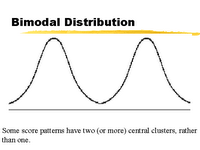
The time has come for the business world to retire the customer-supplier model, and this is especially true of Caribbean companies.
There was a time when companies were more interested in making short-term profits, than they were in serving customers.
Until the early 1980's, Western companies were quite complacent in the way in which they served, or did not serve customers. The rise of the Japanese manufacturer, however, forced a level of competition that created an entirely new paradigm of customer focus. The Quality Movement was born, with gurus such as Deming and Juran taking the lead in helping customers to create a new focus on serving customers.
However, as useful as the model was when it was introduced, it had its limitations. It was primarily created as a way to transform the relationship between the paying customer and the employees of the company. By thinking about the customer differently, employees could begin to put their needs at a higher priority than before, and therefore ensure that the company's efforts were focused on the end-customer needs.
Problems arose as the model was stretched beyond its limits when it was applied to internal relationships between departments, and employees within departments. The "customer-supplier" model was applied to all kinds of relationships, and to this day it is still being mis-applied.
The mistake came when two departments or employees that are interdependent were forced into the model’s relationship and one party had to be seen as the customer and the other seen as the supplier. In a neat, artificial world of linear processes it was possible to force the distinction to apply, but in most real-world working relationships the optimal way to achieve combined goals is not to think of the relationship as linear.
Instead, the relationship should be seen as more of a partnership between equals, where an objective is shared, as are the means to accomplish it. In this kind of relationship, the customer - supplier model is not useful, and can even be damaging.
For example, in some companies in which my colleagues and I have worked, we have observed individuals fighting over who should assume the role of supplier versus customer. The fight would typically take place over who the customer is, and therefore who had the power to set the precise terms of the relationship.
In other companies, there has even been a struggle to turn a productive, non-linear relationship into unproductive, linear relationships with an emphasis on formality and bureaucracy. Attempts to turn the New Product Design process in numerous companies into something that resembled an assembly line are good examples of trying to force a creative process into a mould that it should never be forced to fit.
Thankfully, the newest thinking from the marketing world related to the customer’s experience offers a way out.
In our work here in the Caribbean we face a situation that is not unique, but is quite pronounced relative to that of developed countries. In short, the average customer service professional in the region has at most an idea of what excellent service is. At the same time, they have very little direct experience of excellent customer service.
In other words, they have heard about, read about and seen excellent customer service in the movies and on television and from those who have traveled. However, they have not actually experienced it themselves on a systematic basis.
This is quite different from their counterparts in the North America, for example, who are much more likely to have experienced service that is consistently professional through a variety of national chains or nationally known companies. In the Caribbean, the regional examples such as KFC, HiLo or local public transportation companies for example, are not examples to emulate in the least.
The new employee, therefore, enters the workplace with this lack of experience serving as their only point of reference.
Furthermore, they enter workplaces that are characterized by a deep mistrust, if Jamaica is an example through which region-wide behaviours can be broadly understood.
Studies by Carl Stone in his 1982 study for the Jamaican government entitled Worker Attitude Survey, and the book Why Workers Won’t Work (1997) by Kenneth Carter show clearly that most workers are demotivated, and that their de-motivation has its roots in distrust of management.
It can be argues that this distrust has its roots in slavery, and the perverse worker-management relationships that prevailed in that institution for almost 400 years.
Regardless of the source, this lack of mistrust in today’s workplace begins with worker-manager relationships and continues in the employee-customer relationship. There is an old axiom: “an employee will never treat their customer better than they themselves are treated.”
I would update that axiom to say that an employee will never provide an experience for their customer that they themselves are not experiencing on the job. I would even go further to day that an employee will show no more interest in the customer’s experience, than their manager is demonstrating in the employee’s experience. In other words, a manager who does not care will produce employees who do not care.
I cannot say to what degree the above “updated axiom” is true of companies based outside the region. However, I am confident in saying that our background of workplace de-motivation and distrust makes it more (not less) likely that an unskilled manager will do serious damage to the customer’s experience by mismanaging employees.
The symptoms are rife across the region. "Res a Dem" treatment, sullen faces, workers standing around waiting for something to happen, “service with a scowl” according to a colleague of mine.
The enterprising worker is unable to rise above the norm, and quickly learns to do as little as possible to keep the job, without being committed to a high standard of anything. Eventually, he or she moves on to a different job, hoping that it will be different, and generally encountering the same situation.
While I have no empirical evidence, I believe that there is a difference when that same worker migrates to North America and encounters very different management style, in general. The change in behaviour may not be immediate, but it does take place. If this could be investigated with actual research, it might show that the worker himself is not the problem, as they are quite able to adapt to the demands of their new job.
Instead, the problem would seem to be one of management, and ownership. Company leadership takes the primary role to create the environment in which the workers serve customers. In other words, the onus is on them to create the experience that is desired, provide an environment that is abundantly manifests it, and train themselves and employees to produce it consistently.
This focus on producing experience is the gift that the marketing world has given to those who must transform their companies to be customer-oriented. These experiences go beyond the mere meeting of needs and the provision of outputs, and include as well the psychological feelings that ensue from good service.
For managers, this is a far departure from the old customer-supplier model, and for Caribbean managers it means finding ways to overcome destructive relationships and experiences that damage the bottom-line.
Labels: customer *.*, customer service, trust, wontwork
Read more!
 Carl Stone was a giant of a man, but his work has largely disappeared from view.
Carl Stone was a giant of a man, but his work has largely disappeared from view.






